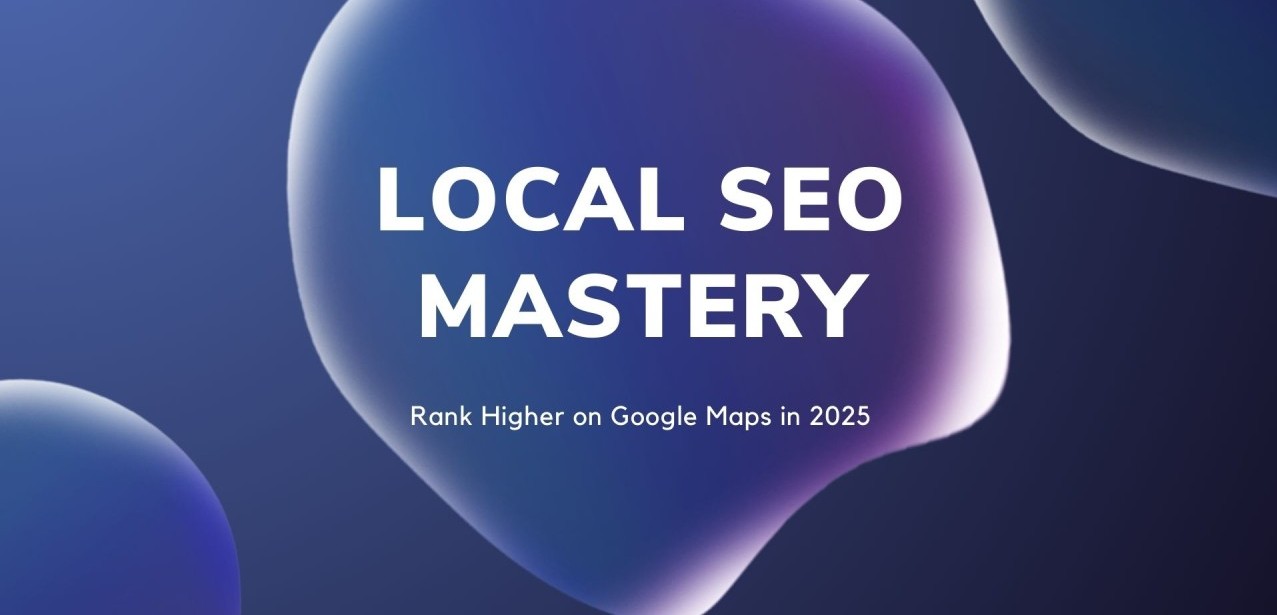Ranking high search engine results is very important for any local business. When a person searches for any service like “best salon near me” or “plumber in [your city]”, you would want your business listing to appear on top. This is where local SEO steps in.
In this guide, we’ll break down exactly how to master local SEO so your business dominates the local search results and Google Maps.
What is Local SEO?
Local SEO is the practice of optimizing your online presence to attract more business from relevant local searches. These searches happen on Google and other search engines, but mostly on Google Maps and the local “3-pack” (the map + 3 business listings you see at the top of search results).
If you have a physical location or serve a geographic area, local SEO is crucial.
Why Local SEO Matters in 2025?
- 46% of all Google searches have local intent
- 78% of mobile local searches result in an offline purchase
- People trust Google Maps and reviews over paid ads
That means your local SEO directly impacts foot traffic, calls, appointments, and sales.
Step-by-Step: How to Dominate Local SEO?
1. Claim and Optimize Your Google Business Profile (GBP)
Google Business Profile (formerly Google My Business) is your #1 tool for local SEO.
Do this:
- Claim your listing at google.com/business
- Add accurate business name, category, phone, hours, and website
- Upload high-quality photos
- Add a compelling business description
- Use keywords (naturally!) in the description
Pro tip: Post regular updates, promotions, or events using GBP Posts—it keeps your profile active and boosts visibility.
2. Get Real Customer Reviews (and Respond!)
Reviews are a ranking factor—but they also build trust. Encourage happy customers to leave 5-star reviews.
How to get more reviews:
- Ask right after a sale or service
- Use SMS or email follow-ups with review links
- Place a QR code in-store or on receipts
Always respond to reviews (positive and negative). It shows you’re engaged and boosts your profile activity.
3. Use Local Keywords (Smartly)
Incorporate keywords like “hair salon in Brooklyn” or “best dentist in Dallas” into your:
- Website homepage
- Service pages
- Blog content
- Title tags and meta descriptions
- GBP profile description
Use tools like Google Keyword Planner or Ubersuggest to find local keyword ideas.
4. Create Location-Specific Pages
If you serve multiple locations, build separate pages for each city or neighborhood.
Each page should include:
- Localized content (mention landmarks, neighborhoods)
- Unique offers or testimonials
- Embedded Google Map
- Local schema markup
Avoid duplicate content—make every page unique!
5. NAP Consistency Across All Platforms
NAP = Name, Address, Phone Number. It must be identical everywhere online—your website, social profiles, directories, etc.
Tools to help:
- Moz Local
- BrightLocal
- Yext
Inconsistent NAP confuses Google and can hurt your rankings.
6. Build Local Citations
A citation is any mention of your business online. Start with:
- Yelp
- Yellow Pages
- Foursquare
- Bing Places
Then move to niche or local directories (e.g., wedding vendors in Mumbai or realtors in Cape Town). The more accurate mentions you have, the better.
7. Add Structured Data (Local Schema)
Schema helps Google understand your business info. Use Google’s Structured Data Markup Helper to add:
- Business name
- Address
- Hours
- Ratings
- Services
This can lead to rich snippets in search results, which increases clicks.
8. Make Your Site Mobile-Friendly & Fast
Most local searches happen on mobile. If your site is slow or clunky, users (and Google) will bounce.
Optimize for:
- Fast load speed (use tools like GTMetrix or PageSpeed Insights)
- Mobile responsiveness
- Click-to-call buttons
- Easy navigation
9. Leverage Social Media & Local Engagement
Share your blog posts, offers, and updates across social platforms. Tag local places, use geotags, and join local Facebook or WhatsApp groups.
You can also:
- Sponsor community events
- Partner with other local businesses
- Get featured on local blogs or news sites
These build local relevance and can earn valuable backlinks.
Bonus: Track Your Local SEO Progress
Use these tools:
- Google Search Console – track local keyword rankings
- Google Analytics 4 – see traffic from nearby users
- Google Business Profile Insights – measure profile views, clicks, calls
- BrightLocal or Whitespark – for citation tracking and local audits
Final Thoughts
Local SEO is more than just a listing—it’s your reputation, visibility, and digital storefront. With the right strategy, your business can show up right when people are ready to buy.
Start with your Google Business Profile, get more reviews, and stay consistent across the web—and you’ll be on your way to dominating your city’s search results.

